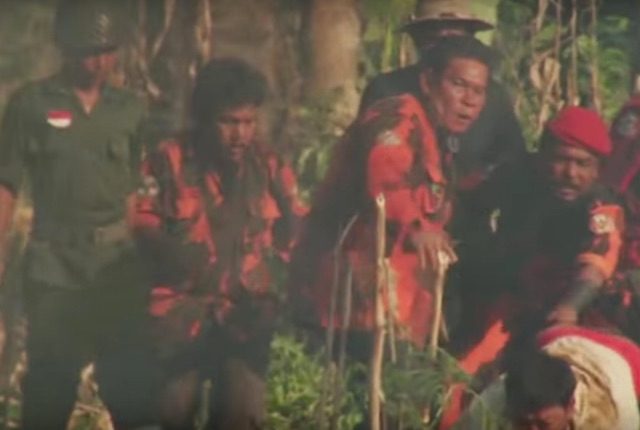SUMMARY
This is AI generated summarization, which may have errors. For context, always refer to the full article.

THE HAGUE, Netherlands – Activists seeking justice for a brutal 1965 anti-communist purge in Indonesia launched a people’s court Tuesday, November 11 charging the state with crimes against humanity 50 years after the crackdown.
“To this day the Indonesian people are denied the right to truth, to justice, to rehabilitation,” said the coordinator of the International People’s Tribunal, Nursyahbani Katjasungkana.
Indonesia was charged with 9 counts of crimes against humanity at the mock tribunal – which carries no legal weight – being heard before a panel of 7 international judges.
Young Indonesians are still marked by the “stigma of their grandparents and parents,” Katjasungkana, a leading Indonesian activist, told the start of 4 days of hearings in The Hague, home to several international criminal tribunals.
“It is time to break down the vicious circle of denial, distortion, taboo, secrecy surrounding the events of 1965.”
At least 500,000 people died in the purge across the Southeast Asian archipelago that started after then General Suharto put down a coup on October 1, 1965. (READ: ‘Indonesia must do more to provide justice for the 1960s mass killing victims’)
Authorities blamed the attempted coup on the Indonesian Communist Party (PKI).
Security forces, supported by local groups, rampaged through the country massacring hundreds of thousands of people suspected of even weak links to the PKI, and jailing scores of others.
It was “the darkest year in Indonesia’s history,” chief prosecutor Todung Mulya Lubis told Tuesday’s hearing.
“1965 tells more than mass killings. 1965 also tells of enslavement, imprisonment, torture, sexual violence, persecution,” he said.
Seeking apology
He also charged the United States, Britain and Australia with complicity “by knowingly aiding and assisting” Jakarta by providing small arms, radio communications and money.
Suharto took power from then president Sukarno after the failed coup and ruled Indonesia, a former Dutch colony, with an iron fist for 32 years.
Calls have grown for action to come to terms with the dark episode since Suharto was toppled in 1998, but the authorities have been criticized for making little progress.
“We have seen no genuine attempt by the government to resolve all the gross and systematic violation of human rights which took place since 1965,” said Lubis.
While the tribunal has no powers, the organizers are hoping that it might help push new President Joko Widodo to set in motion “a genuine reconciliation.”
Judge Zak Yacoob, a former top South African justice, said he hoped the hearings could “provide the impetus for the creation” of something like a truth commission.
Widodo, who came to power last year, is viewed as a break from a string of rulers with links to the Suharto era.
But he has so far refused to apologize for the events of 1965, and an invitation to the Indonesian government to attend the hearings went unanswered.
Indonesia foreign ministry spokesman Arrmanatha Nasir last week dismissed the tribunal.
“For the government, the issue of 1965, the reconciliation has been done, it’s closed. If we keep talking about this problem, we will keep looking back to the past,” he told reporters in Jakarta. – Rappler.com
Add a comment
How does this make you feel?
There are no comments yet. Add your comment to start the conversation.